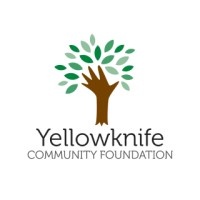
Northern Food Businesses
At a glance
- No Condition
- Unspecified
- Agriculture, forestry, fishing and hunting
- Transportation and warehousing
- Northwest Territories
- For-profit business
- Social economy enterprise
- Non-financial cooperative
- All revenue ranges
- All organization sizes
- Indigenous Peoples
- Rural or Northern Residents
Overview
Get funding to invest in food production, storage and distribution systems and related training, research, analysis and advocacy in order to improve food security in the territories.
Activities funded
The Northern Food Businesses stream offers funding for activities that fortify and sustain food production systems in Northern territories. Eligible projects include acquiring equipment, conducting research, and enhancing skills related to the food industry.
- Purchase of equipment to produce and harvest, process, and safely store, distribute, or transport food.
- Research, analysis, and advocacy related to food production and harvesting, food processing, and food storage, distribution, and transportation.
- Investments in food production systems.
- Investments in skills training related to food production and harvesting, processing or storage, distribution, and transportation.
Eligibility
Eligibility for this grant is open to various entities involved in Northern agriculture and food businesses.
- For-profit businesses or commercial entities.
- Organizations, corporations, associations, cooperatives, partnerships or institutions controlled by First Nations, Inuit, Metis, and non-status Indians (except those established for charitable or religious purposes).
- Municipalities.
- Social enterprises.
Who is eligible?
This stream is open to: - For-profit businesses or commercial entities; - Organizations, corporations, associations, cooperatives, partnerships or institutions controlled by First Nations, Inuit, Metis and non-status Indians (except those established for charitable or religious purposes); - Municipalities; and - Social enterprises.
Who is not eligible
The Northern Food Businesses Stream does not specify explicit exclusions beyond the described eligibility criteria. However, organizations established for charitable or religious purposes are mentioned as not eligible within certain categories.
- Organizations, corporations, associations, cooperatives, partnerships or institutions established for charitable or religious purposes.
Eligible expenses
The grant covers expenses related to food production and related activities aimed at building a strong territorial food system.
- Purchase of equipment for food production, harvesting, processing, storage, distribution, and transportation.
- Research and analysis pertaining to food production, harvesting, processing, storage, distribution, and transportation.
- Investments in food production systems.
- Investments in skills training related to food production and other associated activities.
Eligible geographic areas
This grant is aimed at supporting Northern agriculture and food businesses and communities to build a strong territorial food industry in the territories.
- Companies located in Nunavut.
- Businesses in the Northwest Territories.
- Organizations operating in Yukon.
How to apply
Inquire for Information
- Contact by email at cannor.operations.cannor@canada.ca to obtain detailed application guidelines and criteria.
- Reach out to a regional office by phone for queries:
- Iqaluit, Nunavut: 867-975-3757
- Yellowknife, NWT: 867-669-2608
- Whitehorse, Yukon: 867-667-3346
Additional information
Here are additional relevant details for this grant:
- Ensure that activities align with community needs and contribute to long-term food security in Northern communities.
- Applicants are encouraged to consult with local community members or stakeholders to strengthen project applications.
- Collaboration among multiple stakeholders or communities can strengthen the application and increase chances of success.
Contacts
Frequently Asked Questions about the Northern Food Businesses Program
What is the Northern Food Businesses?
Who is eligible for the Northern Food Businesses program?
What expenses are eligible under Northern Food Businesses?
Who can I contact for more information about the Northern Food Businesses?
Where is the Northern Food Businesses available?
Is the Northern Food Businesses a grant, loan, or tax credit?
Who are the financial supporters of the Northern Food Businesses?
More programs like this

Agri-food Funding

Support for Entrepreneurs and Economic Development (SEED) — Sector Support Capital Expansion Incentive

Gladys and Albert Eggenberger Agricultural Fund

Support for Entrepreneurs and Economic Development (SEED) — Sector Research Support

Employee Training Program

Innovation Canada — Innovation Advisors in NWT

Support for Entrepreneurs and Economic Development (SEED) — Micro-business

Regional Tariff Response Initiative (RTRI) — Northern Canada

Job Creation Partnership Northwest Territories
